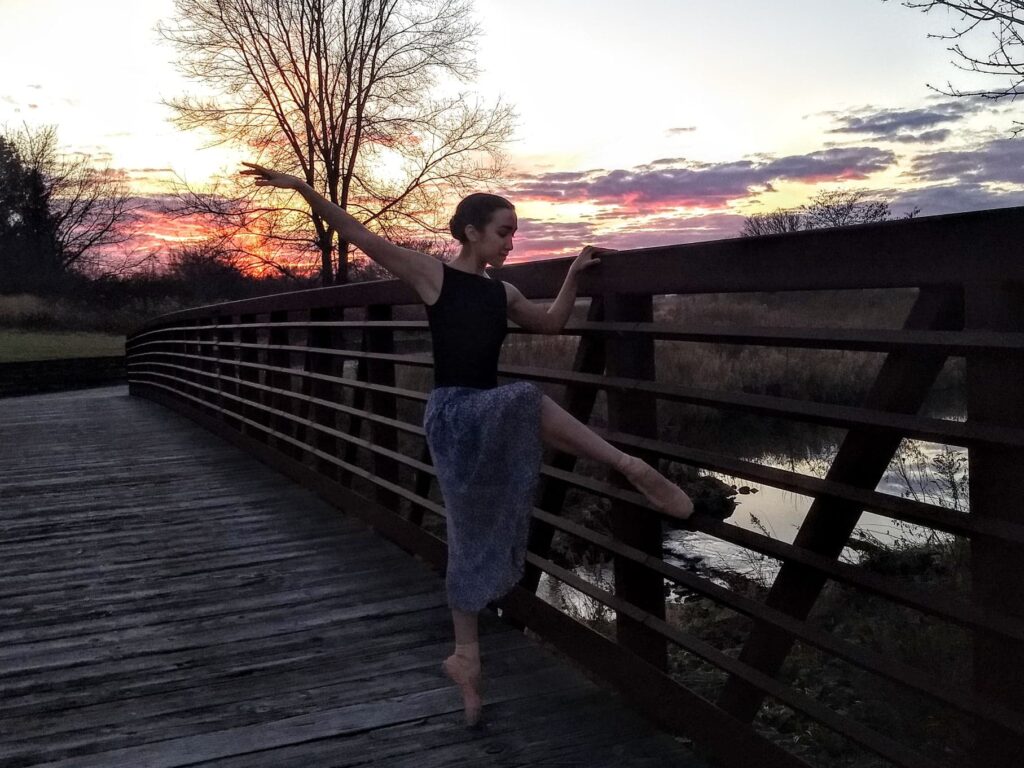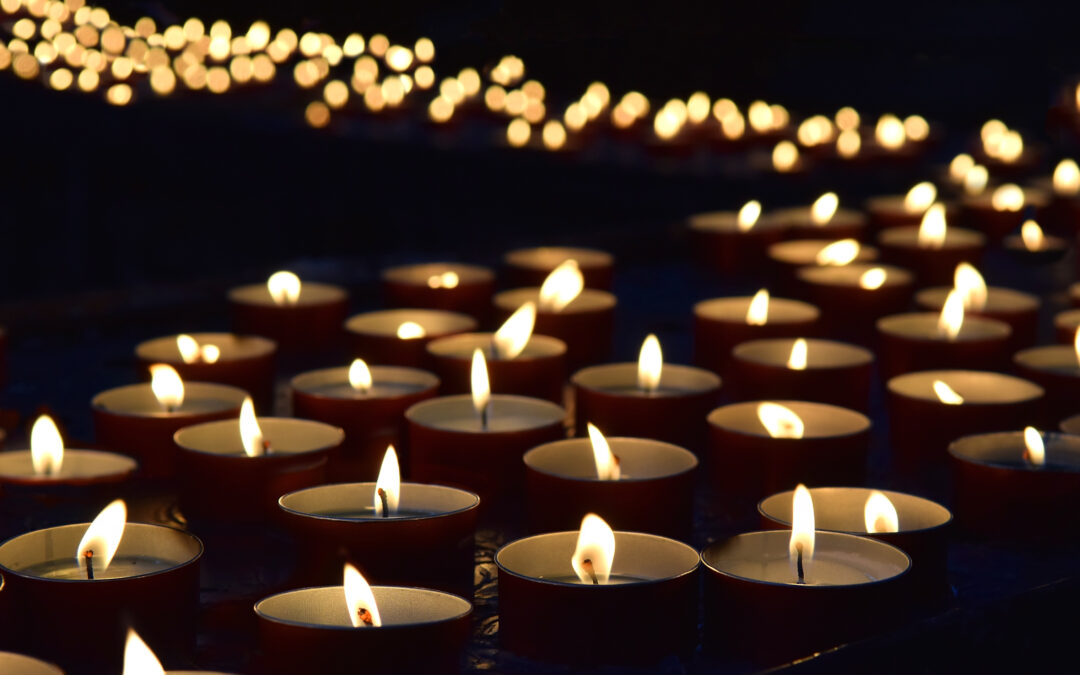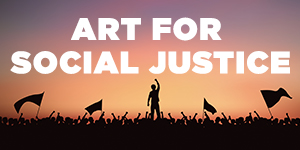Written by: Martina Berger, senior dance performance major, NIU School of Theatre and Dance
There has been a huge wave of articles that have been published in recent weeks in response to the COVID-19 pandemic. This is simply one more that will crash onto your screen, yet please allow it to give you another perspective and to reveal to you several insights about art and humanity that I have discovered to be true in this time. As our country takes time to remember the Holocaust this week, it is both appropriate and imperative that we exercise our ability to hold on to what is true.

Martina Berger
Just before travel limitations began several weeks ago, I had the pleasure of visiting Ballet Austin in Austin, Texas, because of a grant from Northern Illinois University’s Student Engagement Fund. As a dancer myself and a graduating senior in the School of Theatre and Dance at NIU, I was able to train at Ballet Austin for a few days and also to speak with Executive Director Cookie Ruiz.
Throughout this semester, I have been working with Rich Grund, one of my professors at NIU, to start the long process of bringing Ballet Austin to Chicago to perform a masterwork from their repertory—Light / The Holocaust & Humanity Project.
“Light / The Holocaust & Humanity Project is a full-length contemporary ballet and Holocaust education partnership that promotes the protection of human rights against bigotry and hate through arts, education, and public dialogue.”
Ms. Ruiz graciously shared her insights and experiences being a part of this transformative project, and her passion for it was obvious. She spoke to me about practical aspects like funding, but mostly, she told me of how Light was a catalyst for opening up communities to the parts they can play in furthering social justice in our society. This speaks to the incredible power of art to impact those who witness it. As Ms Ruiz shared with me, “Everything about this project has an opportunity in a community to change how we think, who we see, that [which] we see, how we treat each other, how we speak to one another, and each of us is holding ourselves accountable.”
These bold statements bring us to the role that art plays in the human experience. As the effects of this project testify, true art is far from being empty entertainment; it influences how we feel, challenges how we think, and ultimately impacts how we choose to live. Dance, in particular, allows us to communicate in a way that cannot be accomplished with words. Dance has a unique way of translating feelings into the visual realm and out of solitary ambiguity. It connects us to one another, whether we are in a theatre, in a studio, or scrolling through a social media feed, like many of us have been doing recently.
As I was walking back from my last class at Ballet Austin, I caught a glimpse of a few members of the professional company rehearsing a pas de deux (a duet traditionally danced by a man and a woman). Seeing their complete concentration, commitment, and competency inspired me, to say the least, which is another fundamental mainstay of art. It is inspiring not only because of the art in and of itself, but because of just what it takes to create a work of art. We who spend the majority of our lives studying, creating, and experiencing art have a unique perspective on this, and we have the privilege and responsibility to share that fountain of inspiration with the world.
This week constitutes the 2020 Days of Remembrance for the Holocaust. I urge you to take a moment, perhaps by creating art, both to honor the memory of those lost during and after the Holocaust and to honor those who survived and are still alive today. To view and take part in a live commemoration service on Tuesday, April 21, visit the United States Holocaust Memorial Museum on Facebook.
Naomi Warren, a survivor of the Holocaust and the woman whose life story was the inspiration for Light, shared in an interview this piece of wisdom that each of us can apply to our lives: “There is no past without a future; there is no future without a past.”
As we remember the horrors that were experienced during the Holocaust, we can be exceedingly grateful that these temporary interruptions cannot be compared. May we all find ways to grow in these challenging times, not evading the discomforts and difficulties, but by climbing into the better future that exists because of them.



